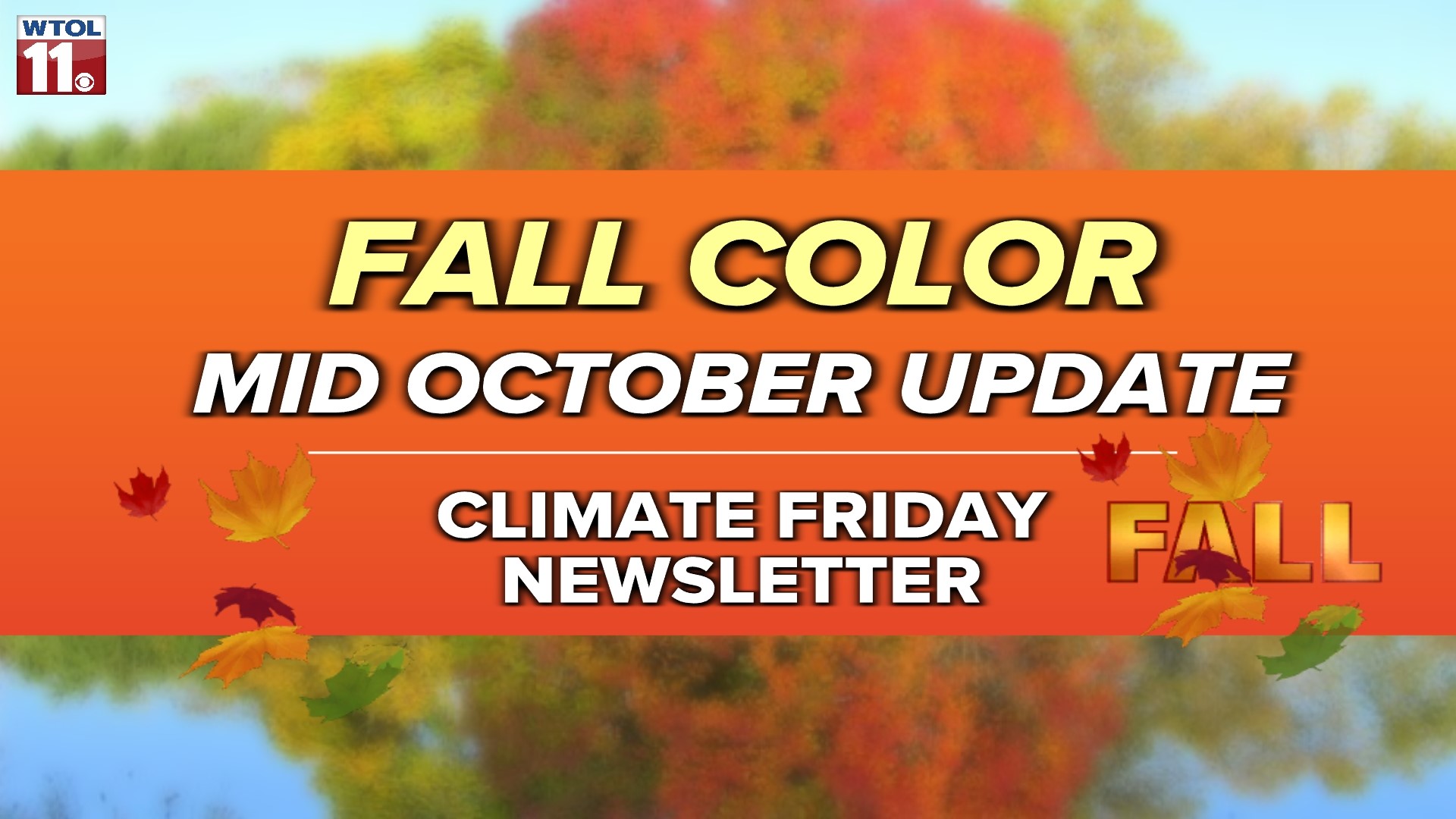TOLEDO, Ohio — Fall colors have taken off this week, decorating the landscape with hues of red, orange and yellow. Even with the dreary weather, fall foliage has brightened up the scenery in northwest Ohio and southeast Michigan. When will fall foliage reach its peak and where do we stand as of mid-October? Meteorologist John Burchfield answers those questions in this week's edition of Climate Friday.
With October almost halfway through, most of the region is enjoying moderate fall color, meaning nearly all trees are changing and approaching the pinnacle of vibrant color. Leaves have even started changing along the Lake Erie shoreline, which typically experiences a later peak of color due to the milder nights associated with the warmer marine environment near the water. This map shows the status of fall foliage across the region.

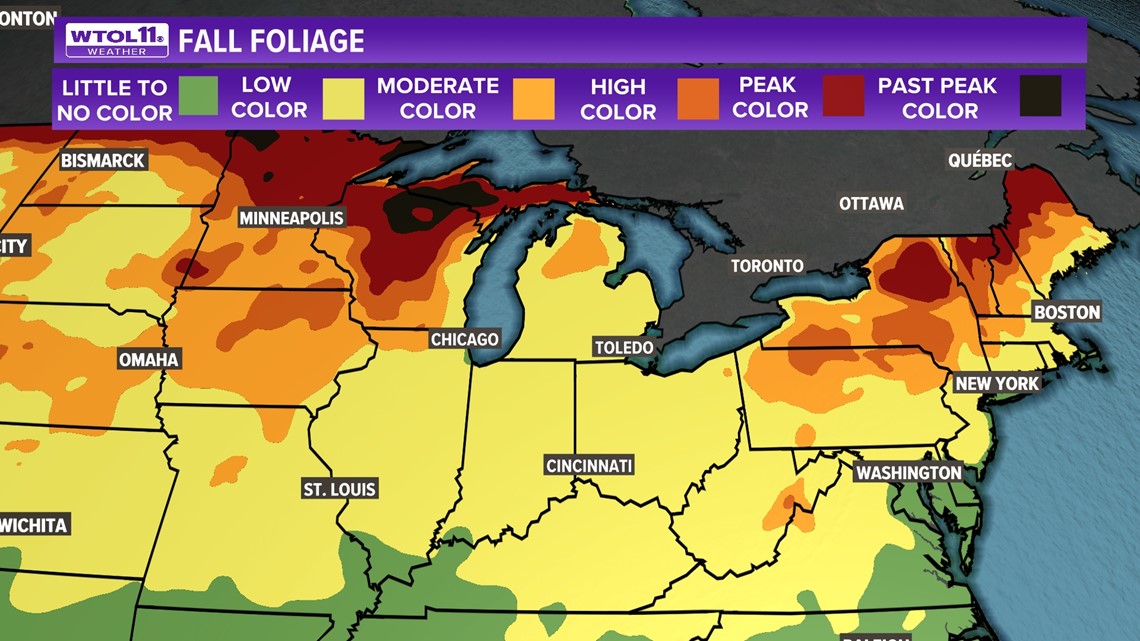
With the exception of the Lake Erie Islands, all of northwest Ohio and southeast Michigan are considered to have "low color", indicated in yellow. While the color here at home is still progressing, northern locations are currently enjoying peak color. Parts of central and upstate New York are near peak color, and areas in northern Wisconsin and the Upper Peninsula are already past the peak.
Due to our relatively milder environment, the color change occurs several weeks later. So when will fall color reach its apex and how is climate change playing a role?
For the Toledo metro and surrounding areas, fall color will reach its peak in ten days to two weeks. That means the week leading up to Halloween will feature vibrant and colorful conditions. You'll still see some beautiful fall color after Halloween, but more leaves will start falling off and turning brown as we round the corner from October into November.
This year will likely bring a brighter-than-normal fall foliage season, in part due to the favorable weather conditions. Temperatures, sunshine, and rainfall are the primary variables that impact fall foliage. Cooler temperatures, especially at night, trigger the color changes in leaves.
This fall has featured numerous cool, crisp nights that have cued the cessation of the production of the green pigment, chlorophyll, enabling other colorful pigments to shine. Warmer autumns are often associated with a later and shorter peak of fall color. Late-season heat or prolonged autumn warmth can contribute to a muted and late peak of color.

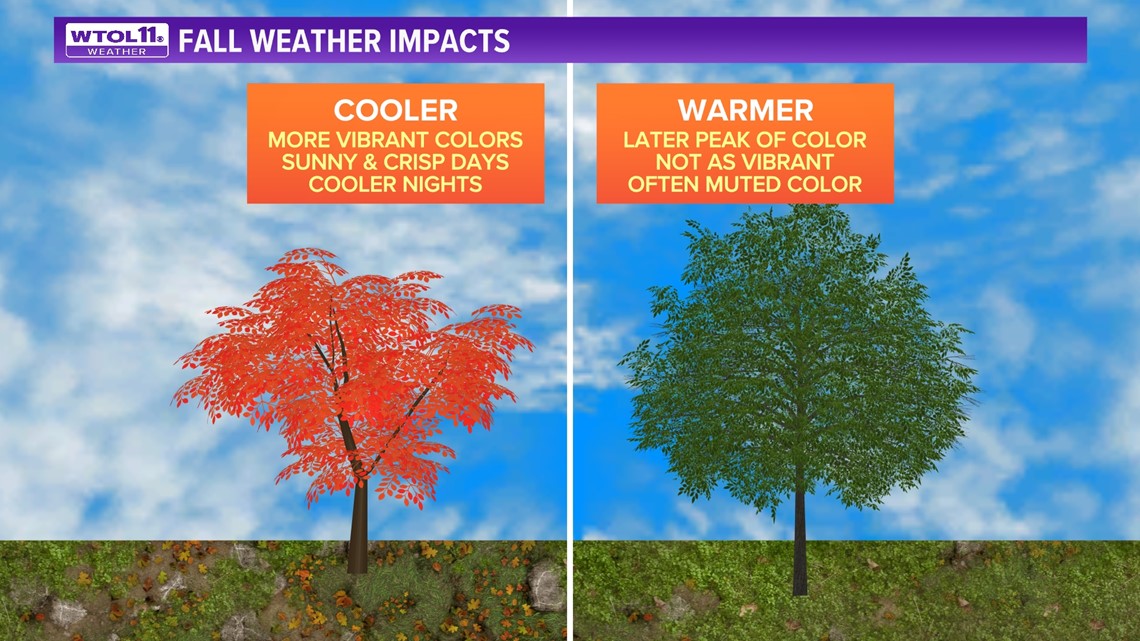
What about sunshine? Overall, brighter days lead to better colors, though some rainfall is needed for trees to sustain optimal health. Excessive rainfall or prolonged drought can strain trees and lead to duller colors. This fall has brought a good deal of sunshine with below-average rainfall, but still enough to keep trees healthy. With 1.90 inches of rain, this fall has dosed out less than half of what you'd normally expect in September and October. But with more rain is in the WTOL 11 weather forecast for the weekend, rainfall needs should be met.

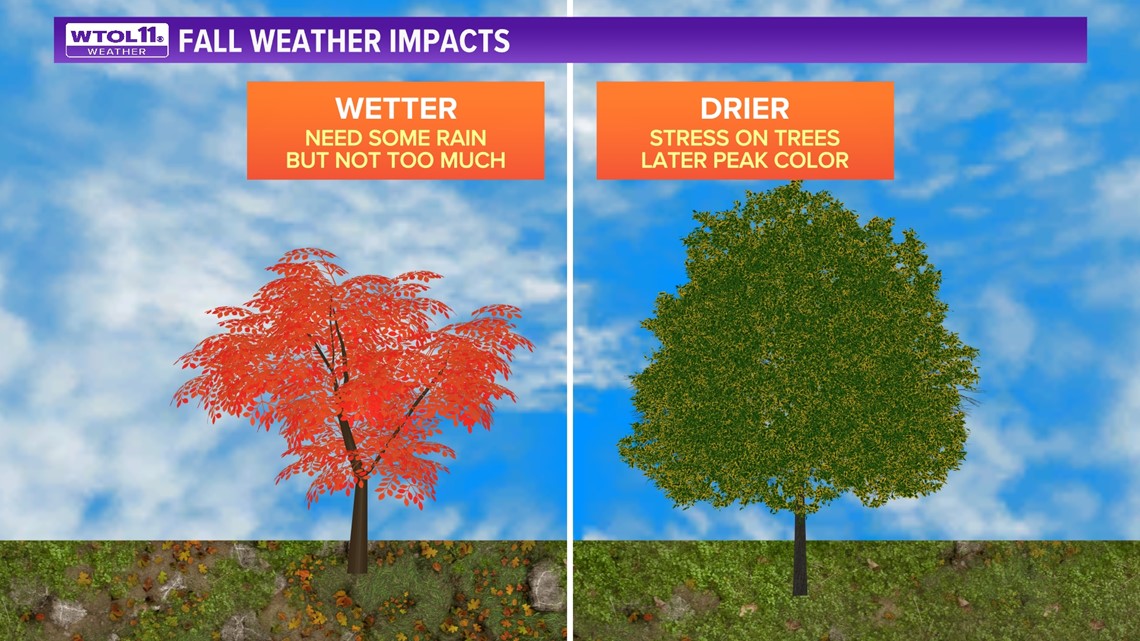
Though the weather this fall has been optimal for bright foliage, climate change is impacting autumn color. As a whole, fall foliage is reaching peak color later in the season than in years past due to fall warming. Fall warmth is growing more common and intense, delaying the onset and shrinking the peak of fall color.
Nationwide, fall temperatures have warmed up by a sizeable 2.7 degrees since 1970, a trend that will continue in future years.

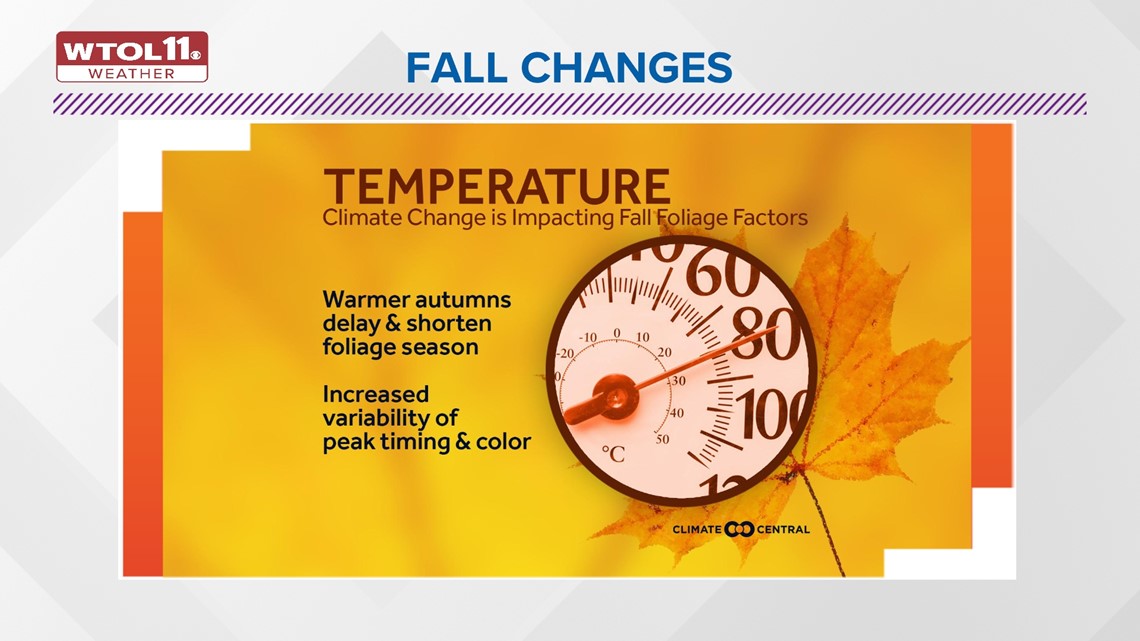
Though fall foliage typically reaches peak color in mid-October in northwest Ohio and southeast Michigan, this timing will continue to slide later in the season due to fall warming. Climate change will likely continue to delay the onset and peak of fall color.
Even with changes in the autumn season, this year has started off colorful and will continue to bring vibrant colors to the region. Within the next two weeks, you'll start seeing brighter and more widespread color. Send your fall photos to the WTOL 11 weather team and subscribe to the Climate Friday Newsletter for new content every Friday.
MORE FROM CLIMATE FRIDAY ON WTOL 11

